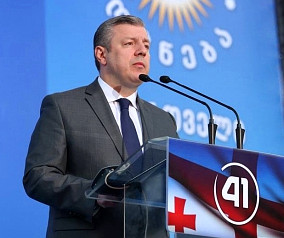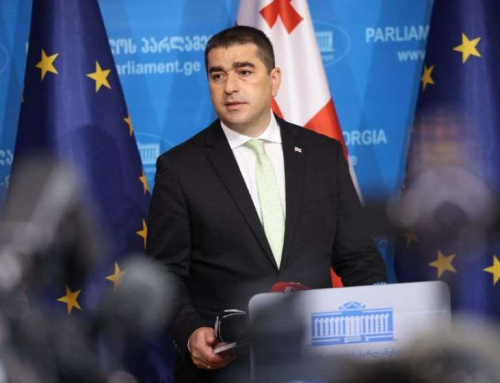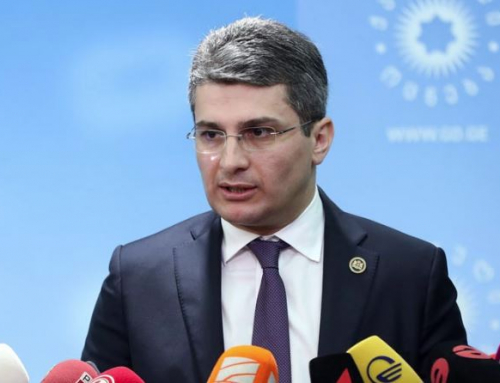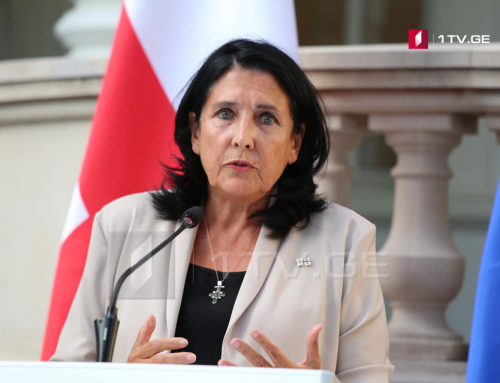TBILISI, DFWatch–The ruling Georgian Dream party on Monday nominated its majoritarian candidates in most of Tbilisi’s 21 electoral districts.
The exception was the downtown Mtatsminda district, where GD refrained from nominating a candidate to support Salome Zourabichvili, an independent candidate and a former ambassador of France in Georgia, Prime Minister Giorgi Kvirikashvili announced during a pompous event.
Several former athletes were among the nominees, including Levan Kobiashvili (Gldani, 21st district); former left winger for German FC Schakle 04, Mikheil Kavelashvili (Nadzaladevi, 18th); former striker at several Swiss football clubs; Shota Khabareli (Samgori, 13th), judo gold medalist from the 1980 Olympics and member of parliament; Bidzina Gegidze (Vake, 2nd), former rugby player and former president of the Georgian Rugby Union, and Irakli Abuseridze (Isani, 8th), former captain of the Georgian rugby team.
Some other noteworthy names are: Zaza Khutsishvili (Vake, 3rd) is popular musician and a member of the rock band Vake Park, Zaza Papuashvili (Didube 15th) is an actor and member of parliament, and known for his scathing statements against the UNM; Giorgi Mosidze (Samgori, 11th) is a anchor at a popular TV quiz “What? Where? When?”, and former medical doctor; Levan Koberidze (Gldani, 22nd) is also a former doctor turned businessman, and former president of Georgian Wine Producers Union; Beka Natsvlishvili (Isani, 10th) is a political scientist who wrote two op-eds for DFWatch in 2013.
The current deputy head of the GD faction, Gia Volsky, a career apparatchik during the Soviet Union, was nominated for Chughureti’s 14th district, while Koba Kobaladze (Gldani, 20th) was expected to become defense minister after Tina Khidasheli resigned.
Other nominees, mostly young people, are less known to the public.
The ruling party, whose complete name is Georgian Dream – Democratic Georgia, relies heavily on majoritarian candidates in the October 8 elections. In June, Bidzina Ivanishvili stated that he expected the party to have “about 95” seats in the new parliament. Taking into account the decline in popularity of the ruling party and the emergence of the various political parties and blocs representing different political views, the ruling party is not expected to garner over 50 percent of the 77 seats through the party lists.
However, it is likely to win an overwhelming victory in the majoritarian system.






Leave A Comment
You must be logged in to post a comment.